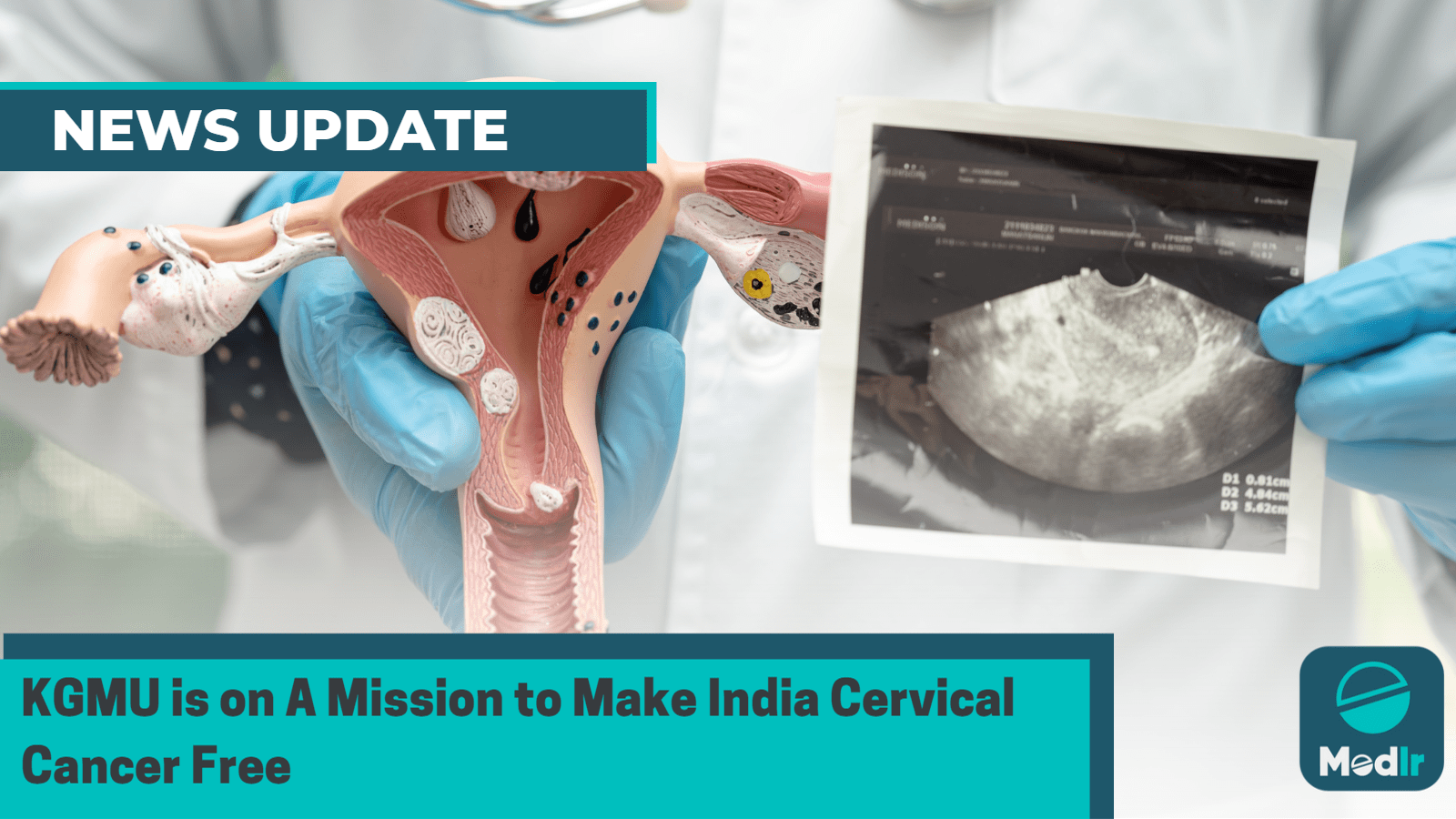KGMU is on A Mission to Make India Cervical Cancer Free
Written by Shaveta Arora
Learn how a special training program in Uttar Pradesh, India, aims to combat cervical cancer by educating healthcare professionals and implementing early detection techniques like HPV testing and visual inspections

The Queen Mary's Hospital (QMH) of King George's Medical University (KGMU) has initiated a special training program for doctors and nurses engaged in women's healthcare at government hospitals and community health canters (CHCs) in primary and secondary care. The training program focuses on the importance of early detection of cervical cancer.
Importance of Health Education regarding Cervical Cancer Prevention
KGMU officials have stated that the program will educate the participants on the early diagnosis of cervical cancer. They highlighted that in the Indian state of Uttar Pradesh (UP), approximately 50 women are diagnosed with cervical cancer every day, and half of them do not survive the treatment
Prof SP Jaiswar, the medical superintendent of QMH, stated-
"This program will enable timely disease control via early detection because deaths from cervical cancer in UP may be higher than WHO's death rate (56 percent) as most cases are diagnosed at an advanced stage. Late diagnosis limits options for many UP patients. About 17,600 cervical cancer cases are reported in UP."
Jaiswar announced that they are inviting doctors from across the state to attend detailed training on the issue. The training is jointly organised by the State Institute of Health and Family Welfare and NHM, with the aim of improving patient outcomes and treatment success.
Cervical Cancer: Screening and Prevention
The hospital spokesperson, Prof Rekha Sachan, stated that the training will focus on training gynecologists, emergency officers, and surgeons to identify early signs of cancer. They will receive information about techniques for collecting cervical cells for the LBC test or HPV test to detect the presence of Human Papillomavirus (HPV).

Prof Sachan further emphasised that the Centre recommends every sexually active woman who is 35 years of age or older to undergo the LBC test every three years. If the results are normal, they can wait for three years until their next test.
Alternatively, doctors can perform co-testing with both HPV and LBC tests. If both results are normal, patients can wait for five years until their next screening.
In addition, doctors are undergoing training in using Visual Inspection with Acetic Acid (VIA) and Visual Inspection with Lugol's Iodine (VILI) for examining the uterine cervix. These examinations play a critical role in the detection and prevention of cervical cancer as they can identify both precancerous and cancerous cells.
Resource - https://www.medindia.net/news/lets-go-the-extra-mile-to-eliminate-cervical-cancer-in-india-212588-1.htm